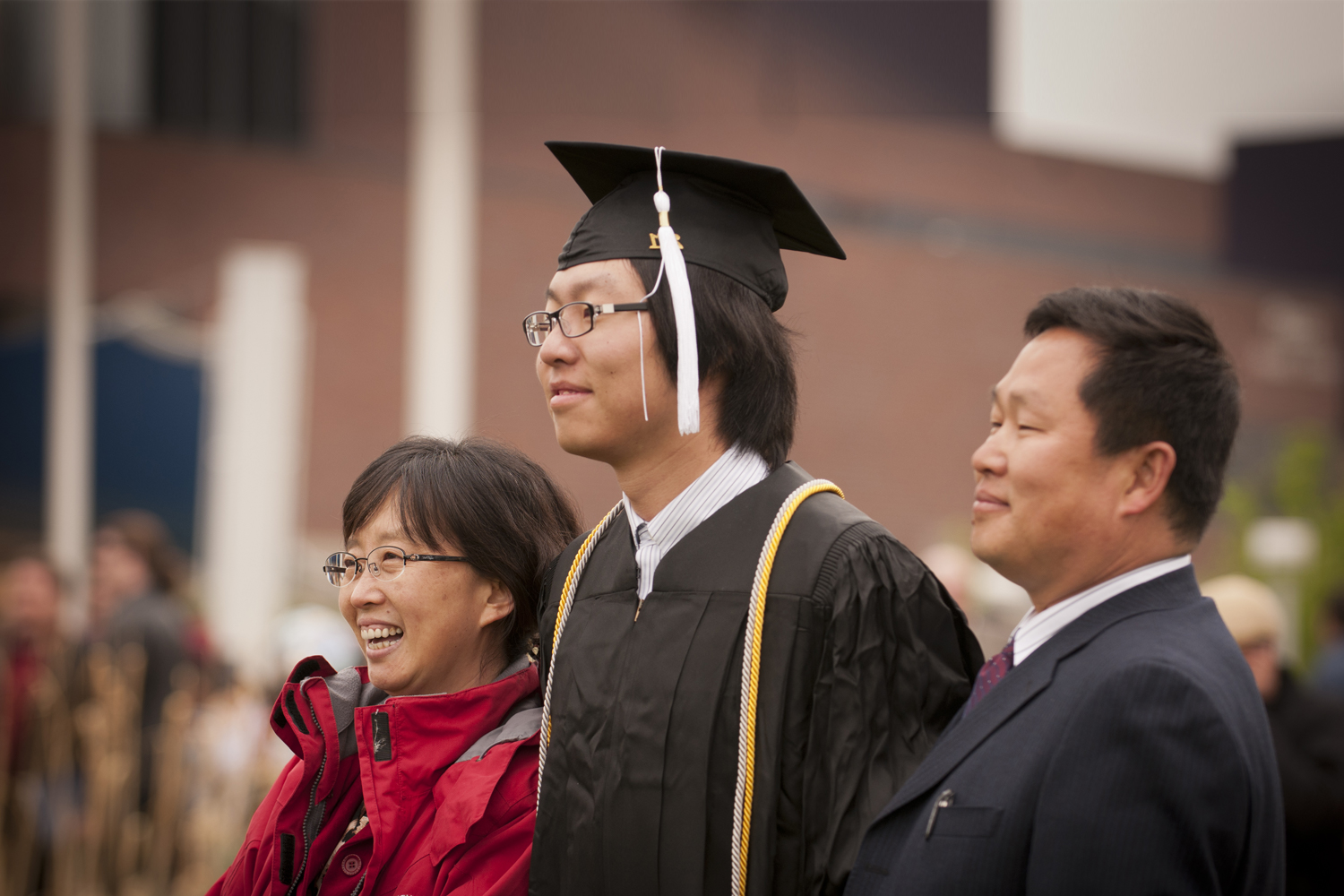Xian Lu – An Academic Decision Based on Reputation
An academic decision based on reputation

(Above: Xian Lu – PhD, Biostatistics & Informatics)
Campus: University of Colorado Anschutz Medical Campus
Class of 2014
Hometown: Hebei, China
Applying to a university more than 10,000 miles away from a student’s hometown is intimidating. Add in the fact that student has never visited campus, met in person with the professors or seen Colorado’s majestic Rocky Mountains and you have a huge risk based purely on reputation.
“Choosing an overseas university was far from easy,” explains Xian Lu, doctor of philosophy student in the Department of Biostatistics and Informatics. “What appealed to me was the reputation of this institution and the wonderful platform it provided to combine statistical practice with public health and basic science research.”
“Though I did not have a chance to visit this campus or even the state of Colorado before I was admitted, what the Colorado School of Public Health eventually offered me just exceeds my expectations.”
With a bachelor’s degree in pharmaceutics, Xian came to the Colorado School of Public Health looking to merge her interest in mathematics with her passion for the pharmaceutical arena. As a student in the Department of Biostatistics and Informatics, she is merging medicine and health care with mathematics; a field that is continuously in need of trained biostatisticians.
“Mathematical evaluation is indispensable in public health research since it aims to apply the best available and most accurate information gained from, for example, biomedical and environmental studies,” says Xian. “It also seeks to assess scientifically instead of merely empirically the quality of ‘risks’ and ‘benefits’ of treatments that are used in medical and public health practice.”
Xian first experienced applying mathematical evaluation to public health research in her statistical consulting class. In the class, students gain experience with statistical consulting and common statistical problems and techniques. Often working with investigators on real consulting projects, the students learn to apply statistical techniques to various research studies.
“My most memorable class will undoubtedly be statistical consulting not only because it provides me a platform to use what I learn in the real world, but it also allows me to watch myself grow,” Xian shares. “I will never forget the frustration I felt when I had begun taking that class. I did not know how to start; I did not even know how to ask questions! But nowadays, I feel more than proud when I look back and realize that I have learned so much from the class.”
The faculty in the Department of Biostatistics and Informatics have been there to help answer Xian’s questions when she’s felt frustrated and offered her suggestions on academic and scientific issues— help she greatly appreciates. Though she is still far from completing her PhD, Xian hopes to utilize her knowledge of health care and her skills in math at a pharmaceutical company, possibly working in clinical trials. For now, she’s studying 10,000 miles away from home.
“The field of public health became popularized or promoted only recently,” she says. “Many institutions might beoffering degrees in biostatistics and informatics now, but some of these degree programs did not exist until a couple years ago.”
“Taking this into consideration, what distinguishes CSPH and the Department of Biostatistics and Informatics is that it has passed the adolescent age and is maturely developed. Everyone will benefit from the learning experiences at CSPH – professionally as well as personally.”
UPDATES
International College Beijing
-

Year-Round Events Enjoyed By ICB Students
Aug 31, 2023Throughout 2023, ICB students are continuing to join in the fun of indoor and outdoor events hosted by the Office of International Affairs (OIA) and CU Denver. In the spring, two hundred thirty students, staff, faculty, and friends recognized the Lunar New Year at an event presented by OIA, the Asian Students Association (ASA), and the Intercultural Club Beijing. The Club’s members act as consultants for International College Beijing (ICB), both for American CU Denver students going to Beijing on study abroad programs and Chinese students coming to CU Denver.... read moreFull story -

Spring in Denver
Apr 22, 2022Spring has arrived in Denver! Blue skies and clean mountain air make it easy for an ICB student to take a study break and step outside for a refreshing walk or bike ride.Full story -

Employment & Learning Opportunities at CU Denver
Apr 22, 2022In the Office of International Affairs, ICB student assistants have helped by providing guidance to other international students about the steps needed for application and admission into the university, and supplying information about visas and immigration processes, travel updates.Full story -

Art Exhibit Inspires Imagination & Critical Thinking Skills
Jan 6, 2022The ICB students found creative inspiration on a visit to the Spectra Art Space, hosted by the Office of International Affairs, where they particularly enjoyed the Nova Ita exhibit.Full story





